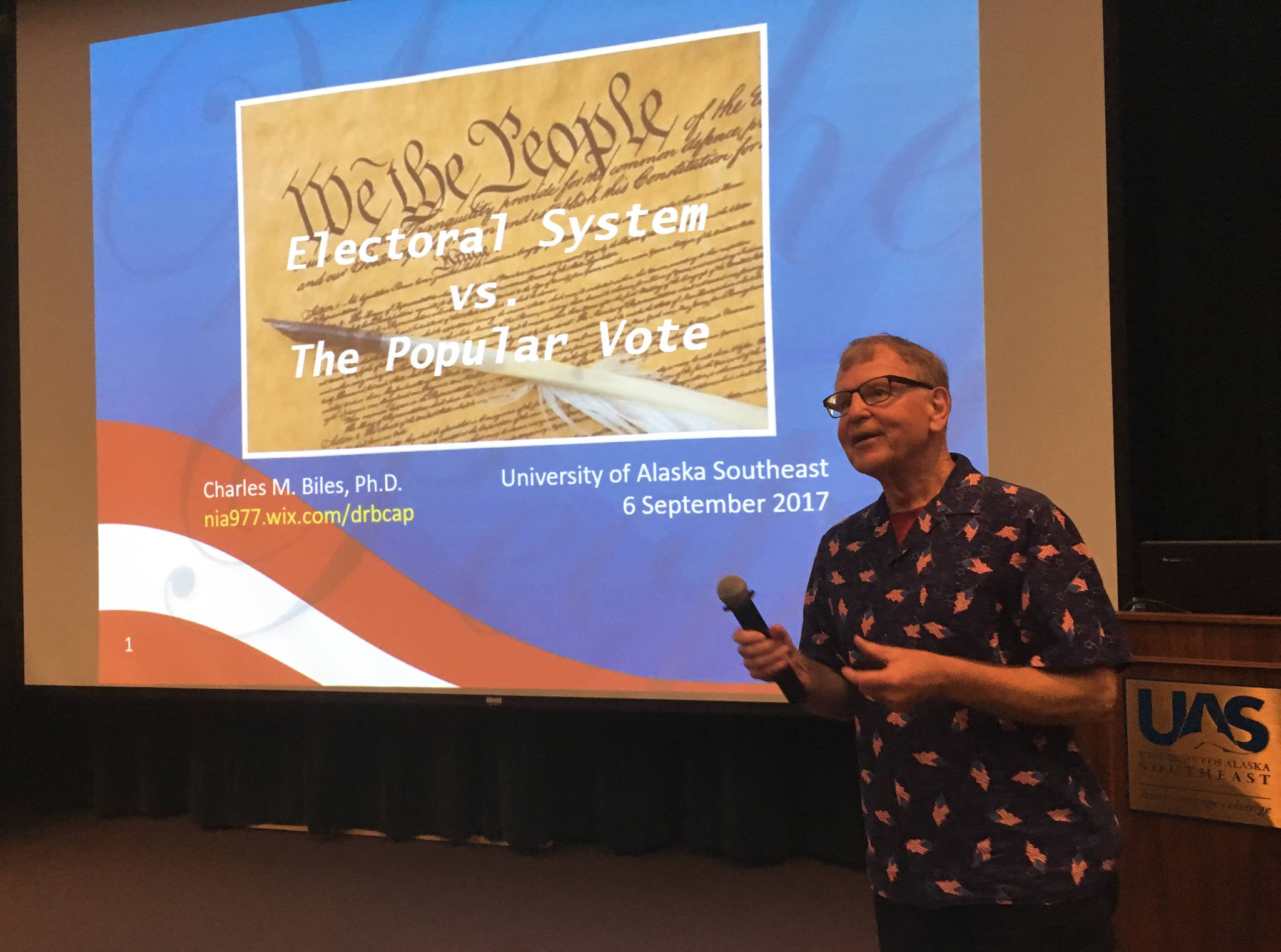On Oct. 3, the nation’s eyes will turn to Washington, D.C. as the U.S. Supreme Court considers oral arguments on a case that will determine whether partisan gerrymandering — the process of drawing political districts to benefit one political party — is constitutional.
On Wednesday night, a continent away, Humboldt State University mathematics professor Charles Biles warned an audience at the University of Alaska Southeast that more problems with America’s political system are on the horizon.
“There’s all kinds of little glitches in the electoral system that as it operates now and need fixing,” he said.
Biles, who was invited to speak by the university’s mathematicians, has studied how the United States assigns seats in the U.S. House of Representatives and in turn, the Electoral College. He has a book on the subject coming out this fall.
Biles, who spoke for about an hour (followed by an hour of audience questions) to about 60 people, said there’s a looming problem in presidential elections because the number of electoral votes has not kept pace with the popular vote.
Between the founding of the republic and the 2000 election, there were only four elections in which the winner of the popular vote failed to also win the Electoral College, the body that actually selects the president. In the past five presidential elections, it’s happened twice.
He believes it’s likely to happen more often, and it’s because of a question of math.
The Electoral College has 538 members: the number of U.S. Senators, the number of U.S. Representatives, and three for the District of Columbia.
Article I, Section 2 of the U.S. Constitution states, “The number of Representatives shall not exceed one for every thirty thousand, but each state shall have at least one Representative.”
Under that guideline, and given the last U.S. Census, the House of Representatives could have anything between 50 and 10,306 people.
Instead, it’s stayed at 435 since 1929.
“The current size of 435 is really on the low end of things, and it is heavily in favor of the smaller populated states,” he explained.
That increases the likelihood of the Electoral College coming up with a different result than the popular vote, something that stresses the country. No other democracy in the world has a higher ratio of population to representation.
Increasing the number of seats in the House could be done by an act of Congress.
“Don’t hold your breath,” Biles said.
Biles also explained other stressors come from the way America’s population is crammed into those 435 House districts and from the way a decadal census doesn’t take into account America’s fast-moving population.
He predicted that the 2020 presidential election, which will be based on figures from the 2010 census, could face problems in that regard.
• Contact reporter James Brooks at james.k.brooks@juneauempire.com or call 523-2258.

